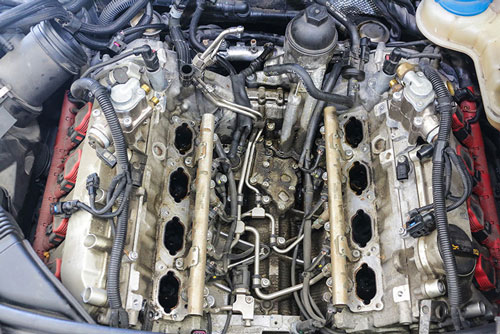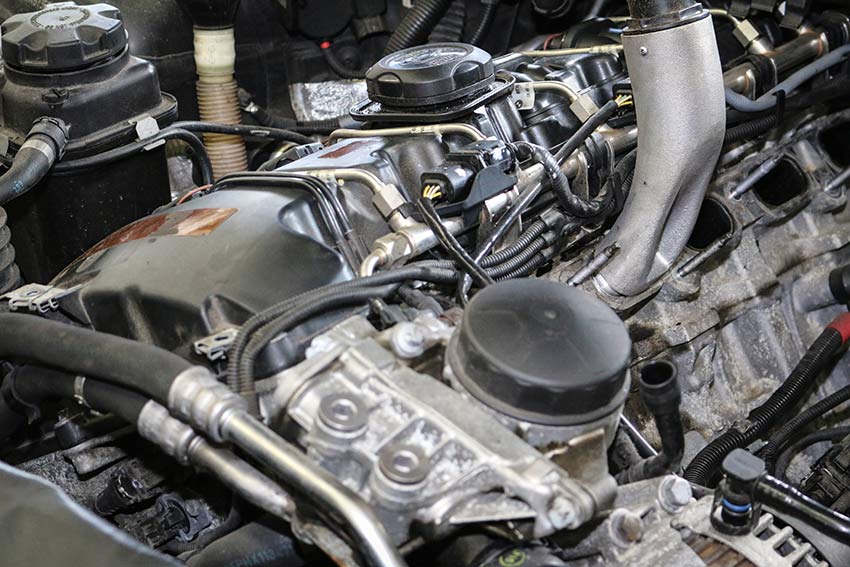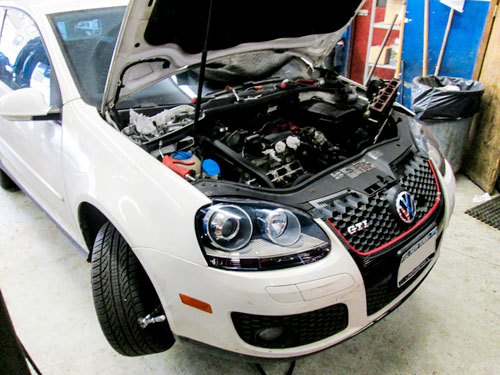Posted on 13 July 2016

Carbon build up on Audi engines such as 2.0 TSI/FSI, 3.0 TFSI, 3.2L V6 FSI and 4.2L V8 FSI are inevitable. The by-products of the engine combustion process contains carbon deposits that looks like soot, is constantly being recirculated through the engine. Overtime these carbon deposits will build up on the intake valves. When this happens the car's fuel economy will be degraded then leading to loss of engine performance. In order to clean off the soot deposits, we start by removing the intake manifold to gain access to the intake ports. We then blast each intake port with crushed walnut shells under high pressure, a procedure our repair shop uses known as walnut blasting. This particular car had a rough idle, drove sluggish and had a misfire during acceleration. The excess carbon was preventing the intake valves to close properly ... read more
Posted on 27 July 2015

What is Walnut Blasting? Walnut blasting is the process of blasting pressurized, crushed walnut shells onto the intake valves and in the cylinder on direct injection engines. This procedure is designed to remove carbon deposits which accumulate over time from blow-by gases, carbonized fuel, and oil on the intake valves and intake ports of the cylinder head. When the valves become heavily carbonated, the engine may exhibit symptoms such as misfire, rough idle, and lack of power, which is a result of the intake valves not being able to close properly. Service Benefits With a clean running engine, power will be restored with a more responsive throttle and allow for an increase in fuel economy. We recommend to have this service performed every 30,000 miles on your BMW equipped with N54 and N55 engines, available on the 135i, 335i and 535i. This service is more involved on V8 motors such as N63 and diesel motors M57, N57 which requires a mor ... read more
Posted on 14 July 2015

Carbon build-up on FSI , TFSI engines are notorious issues on Volkswagen Audi models. The problem related to direct injection carbon build up is a fairly new issue. It’s a new issue because direct injection engines have been becoming much more popular and widely used across car manufacturers. One of the leading reasons why soot or carbon build up on the valves is caused by the PCV system. Blow-by gases contains fuel vapors and oil vapor that will collect on the intake valve during the combustion process. Engines can exhibits symptoms such as misfiring on cold starts, lack of power or check engine light. We recommend having the motor oil changed regularly and having the intake valve cleaned every 35,000 miles to restore engine performance and fuel economy